Russia-Ukraine war. Timeline of events, April 26-28
-
Summary of events by 22.30: Russia launched a missile attack on Kyiv, where the meeting of the UN Secretary General and the President of Ukraine took place
The President of the United States has offered Ukraine a $33 billion support package. US President Joe Biden spoke at the White House and proposed his plan to provide more support to Ukraine. He is asking Congress for $33 billion in military, economic, and humanitarian aid to support Ukraine “over the next five months”. The package includes more than $20 billion in military aid, $8.5 billion in economic aid, and $3 billion in humanitarian aid.
The US could switch natural gas sales to help Poland and Bulgaria, Biden says. The US President also said that in an effort to help Poland and Bulgaria – after Russia cut off gas supplies to them yesterday – the US will work with allies and can redirect the sale of natural gas to them (Poland and Bulgaria).
“Poland has reported significant gas reserves, as has Bulgaria, but they are not as large. We have been working with Japanese allies and can redirect natural gas sales from these countries to Poland and Bulgaria”. Biden said
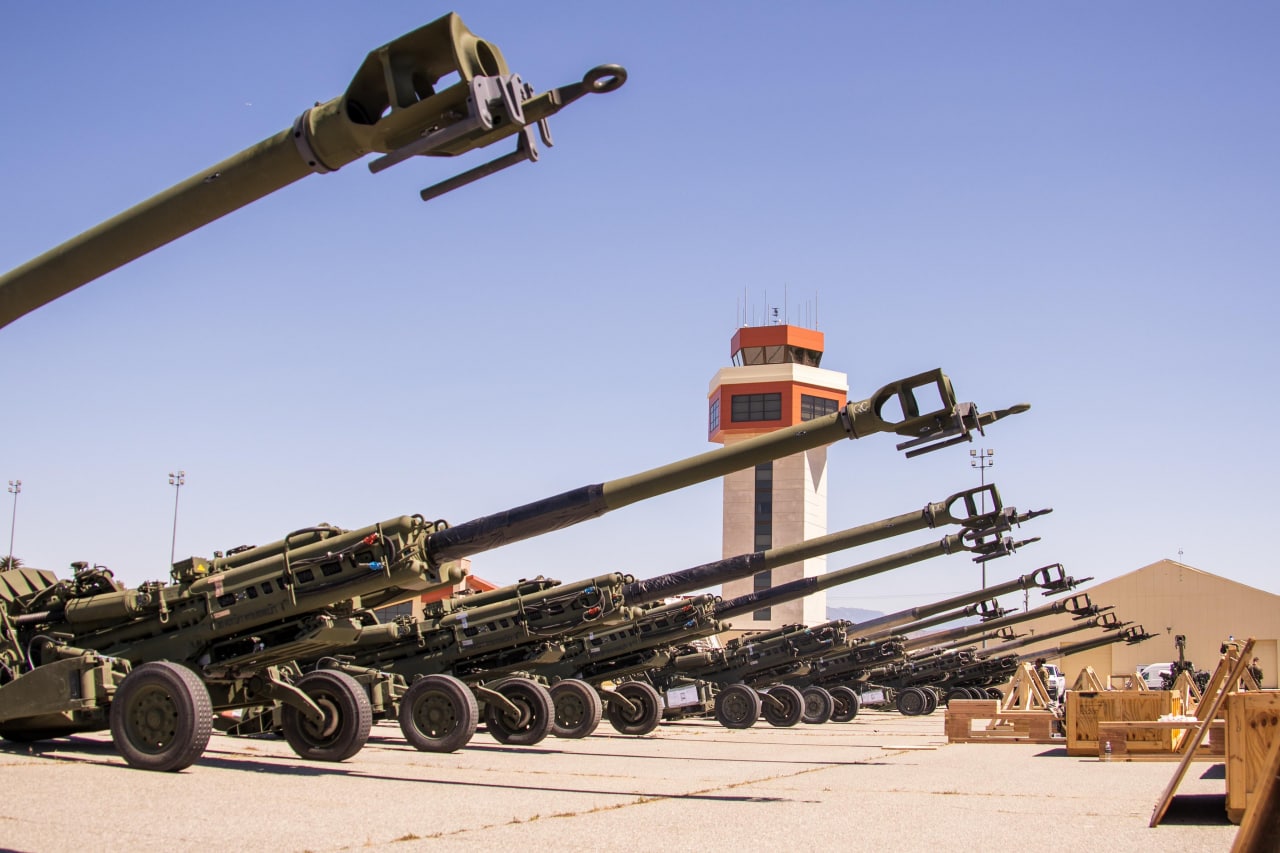
Mariupol is a crisis within a crisis, the UN Secretary-General believes. UN Secretary-General António Guterres spoke after meeting with President of Ukraine Volodymyr Zelensky in Kyiv. He calls the situation in the besieged southern port city of Mariupol “a crisis within a crisis.” “We are doing everything possible to evacuate people from the Mariupol Azovstal steel plant”, he says.
Two explosions went off in Kyiv – Reuters. Two explosions rocked the capital of Ukraine, Kyiv. Kyiv authorities report a missile attack by Russian troops. Information about the victims is being specified. The two explosions occurred during the UN Secretary-General António Guterres’s visit to Kyiv. The rocket hit came during a joint press conference of the UN Secretary-General and the Ukrainian President Volodymyr Zelensky.
First soldier killed on Russian soil by Ukrainian strikes – The Moscow Times. It became known about the first conscript soldier who died on the territory of Russia – “participant in a special operation”. A 19-year-old soldier died in the Belgorod region on April 19. Nikita Koshelev died 15 kilometers from the border with Ukraine, in the Belgorod region – this is what is written in the note, that the parents of the soldier received. The young man was drafted into the army for military service on July 1, 2021. In February, he was sent to the border with Ukraine. Officially, his military service was to end in 75 days.
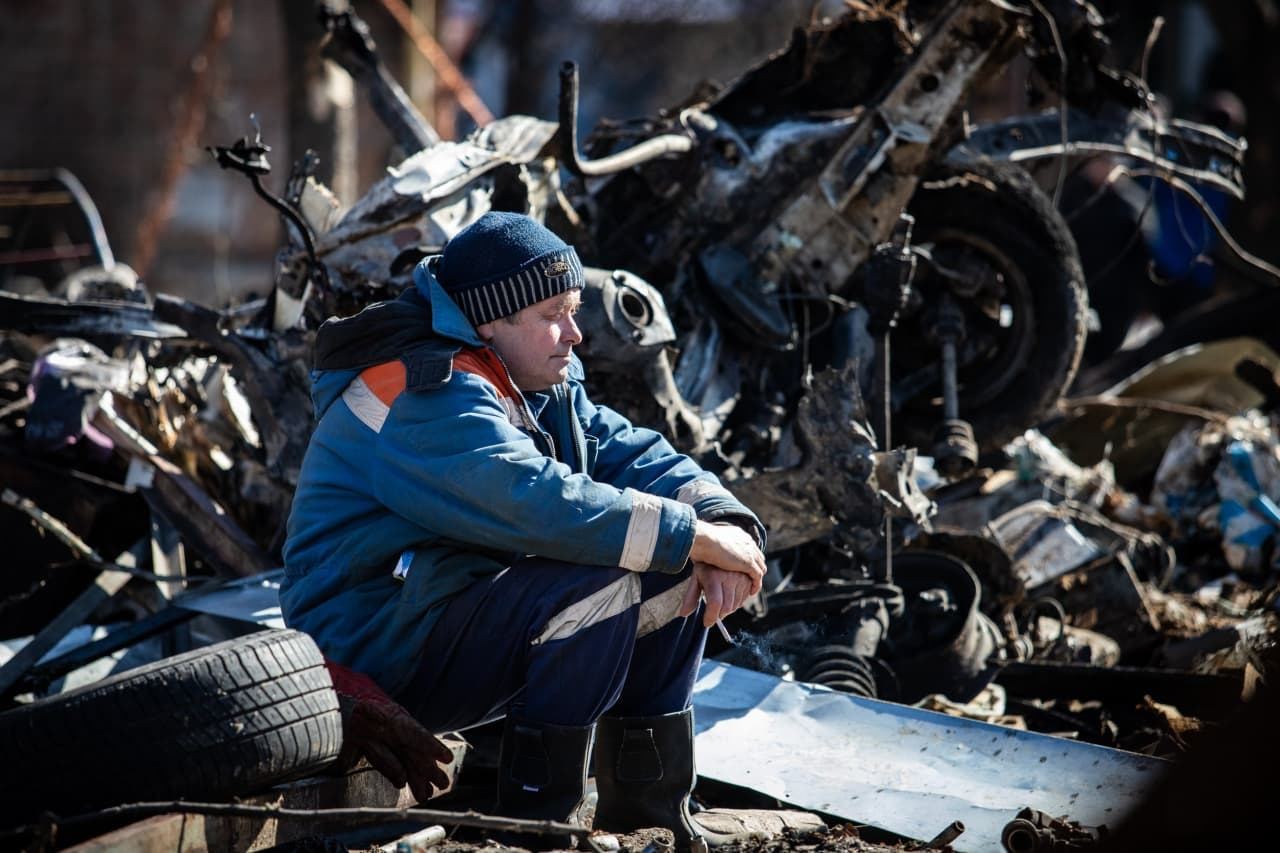
-
The United States will confiscate and sell the property of Russian oligarchs
The White House has proposed giving the government more power to seize and sell the assets of Russian oligarchs and transfer proceeds to Ukraine. The proposal will be submitted to Congress for consideration. Earlier, a similar law was passed in the US House of Representatives. The new White House plans to go further, focusing on cooperation between the Departments of Justice, Treasury, State, and Commerce. These measures will make it easier for the US to confiscate and sell the assets of the oligarchs, as well as use the funds “to address the consequences of Russian aggression”, the White House said in a statement.
-
European companies “use loopholes to pay for gas in rubles”
European energy companies may use loopholes to satisfy Russia’s demand for gas payments in rubles amid fears that gas supplies will be cut off. On Wednesday, state energy giant Gazprom suspended gas exports to Poland and Bulgaria over their refusal to pay in rubles. Today, according to the Financial Times, the two largest importers of Russian gas to Europe – Germany’s Uniper and Austria’s OMV – are preparing to use a new system that will allow them to succumb to Russian demands. To avoid violating EU sanctions, Russia set up a mechanism at the end of March whereby European companies would continue to pay Gazprombank, Gazprom’s Swiss financial arm, for their imports in euros. The Russian bank, which is not under EU sanctions, then converts the euro deposits into rubles in a second account for onward payment to Russia, the FT reported. Tiina Tuomela, Uniper’s chief financial officer, told the newspaper that the company believes the changed payment process is consistent with the sanctions.
-
UN Secretary General in Borodianka: "War is evil"
UN chief António Guterres visited areas in the Kyiv region of Ukraine that had been occupied by Russian troops for several weeks in March. The first stop was Borodianka, northwest of Kyiv, which had been destroyed by aircraft and artillery. “When I see these destroyed buildings, I imagine my family in one of those houses that are now destroyed and blackened. I see my granddaughters running in panic”, he said.
“War is absurd in the 21st century – war is evil and when you see situations like this our hearts of course remain with the victims, our condolences to their families. War cannot be acceptable in the 21st century”.
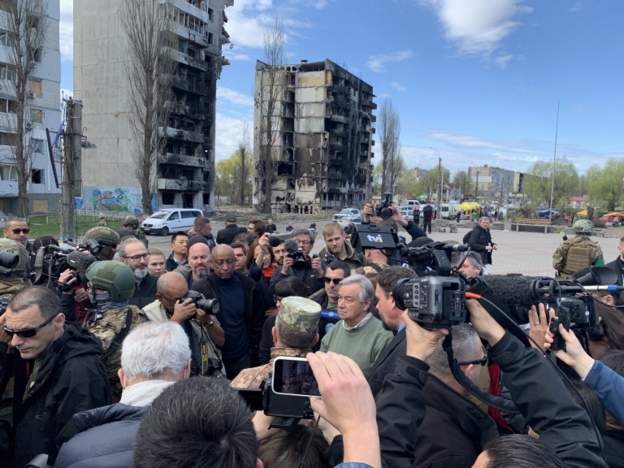
-
Summary of events by 10.00: Russia accused of kidnapping Ukrainian journalists
We are working on a plan for the evacuation of the Mariupol steel plant – the head of the UN. At the Azovstal steel plant in Mariupol, hundreds of wounded soldiers and civilians are reportedly trapped inside and supplies are running low. Most of Mariupol has been destroyed, and the Azovstal plant, a labyrinth of tunnels and workshops, is the last part of the port city free from Russian control. The capture of this port on the Sea of Azov is one of Moscow’s key goals. Speaking earlier to Portuguese media, UN Secretary-General António Guterres said work was ongoing on a plan to evacuate hundreds of civilians from the steel plant. “This is a very complex operation”, said Guterres, who arrived in Ukraine this evening after meeting with Vladimir Putin in Moscow yesterday. “Putin agreed in principle, and it was agreed that the details would be discussed at the meetings that are now taking place”, he said.
The Russian military was accused of capturing Ukrainian journalists. Russian troops are putting pressure on Ukrainian journalists in Moscow-controlled areas, Ukrainian human rights ombudsman Lyudmila Denisova said. Russian authorities in the Zaporozhye region in southeastern Ukraine took journalists hostage, interrogated them, confiscated their equipment and ransacked their homes, Denisova said. According to her, on March 8, a large group of journalists were abducted in the port city of Berdyansk and forced to reveal the personal details of their colleagues. In the southeastern city of Melitopol, Russians ransacked the home of Ukrainian news website editor Svetlana Zalizetskaya, who had fled the city. Her father was captured and released only after the Russians gained control of the site. “By unleashing a hunt for Ukrainian journalists, the occupiers are trying to intimidate them and force them to spread Kremlin propaganda”, Denisova says, adding that such actions are a violation of international humanitarian law.
At night, explosions occurred near the Kherson television center, shelling was carried out by Ukrainian troops. According to the Russian media, the city center was hit by at least two Tochka-U missiles and shells from the Uragan multiple launch rocket system. The shelling was carried out in the area of the Kherson television center from the side of the positions of Ukrainian troops, according to RIA Novosti. After the explosions in Kherson, Russian channels stopped working, Ukrayinska Pravda reports. According to media reports, now the broadcasting of Russian TV channels in the occupied city has been restored.
Russia is using gas and trade as a weapon against Europe, Ukrainian leader Volodymyr Zelensky said. In his overnight address, Ukrainian President Volodymyr Zelensky said Russia was using the gas to blackmail Europe. He said Russia’s decision to cut off gas supplies to Poland and Bulgaria on Wednesday showed that “no one in Europe can hope for normal economic cooperation with Russia”. “Russia considers not only gas, but any trade as a weapon. It is just waiting for the moment when it will be possible to use this or that trading space”, he said.
On April 27, the Russian company Gazprom stopped gas supplies to Poland and Bulgaria due to the refusal of these countries to pay for fuel in rubles. The EU called this move blackmail.
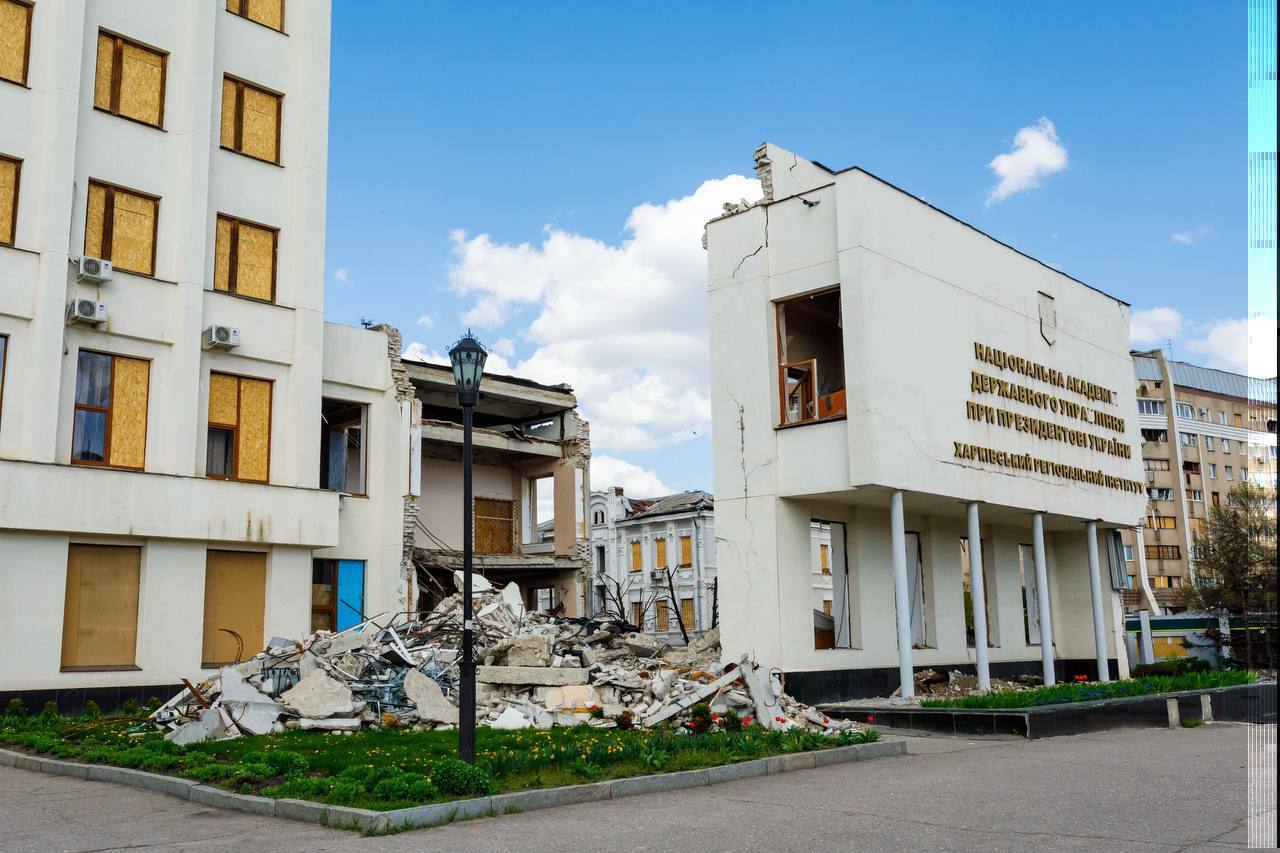
-
Summary of events by 23.30: Putin threatens to "react" to the West's intervention in the war in Ukraine
Any foreign intervention in Ukraine will be met with a “lightning-fast” reaction – said Russian President Vladimir Putin
Gazprom, Russia’s energy supplier, cut off gas supplies to Poland and Bulgaria. Russia refuses to supply gas because the countries refused to pay in rubles. Earlier, Putin demanded that “unfriendly countries” pay for fuel in rubles. Poland and Bulgaria have accused Gazprom of breaching contracts. The Kremlin has stated that the supply of gas to other countries could also be suspended if they do not meet Russia’s payment requirements. The head of the European Commission, Ursula von der Leyen, called Russia’s actions a “tool of blackmail” and claimed that the payment for Russian gas in rubles was a violation of EU sanctions.
Mariupol defenders ask for Dunkirk-style evacuation. Commander of the 36th Ukrainian Marine Brigade, who, together with Ukrainian troops, remain at the Azovstal steel plant in Mariupol, asked the western countries to evacuate the remaining military and civilian soldiers from Mariupol. “We fought for 62 days under a complete siege. Now we are located at the Azovstal plant. We perform tasks together with units of the Azov Regiment and other military units that have also been sieged”, said Sergei Volynsky. “In our group, there are more than 600 wounded children of different degrees of gravity. They are in dire need of medical assistance. There are no conditions, no drugs, and no staff that could help them. There are wounded people whom we help as much as we can. We have hundreds of civilians, dozens of children, many disabled and old people”, he added.
Volynsky said that they could be saved with the help of “evacuation procedures”, similar to the one that Britain carried out in Dunkirk in 1940 when the Anglo-French troops were caught in the trap of the German army during the German occupation. This evacuation is as widely known as the Dunkirk miracle.
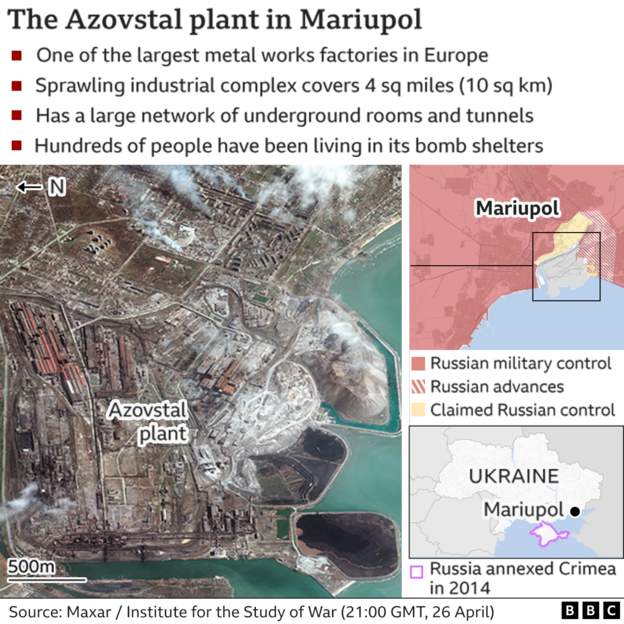
The West must send jet fighters to Ukraine. Minister of Foreign Affairs of the United Kingdom Liz Truss called on the West to provide Ukraine with jet fighters. “If Putin succeeds, there will be innumerable sufferings and horrible consequences for the whole of Europe. We will never feel safe again”, she said. “Heavy weapons, tanks, planes – we can use our reserves, we can increase production. We need to do it all. ”
Kiyv repeatedly called on its allies to supply heavy weapons, such as planes and tanks. NATO has provided only light weapons amid the fears of massive escalation, although more promises have been made to send tanks in the last few days.
287 deputies of the British Parliament fell under the sanctions of Russia for “baseless escalation of Russophobic hysteria”. This means that 213 conservative politicians and 74 Labor members will be banned from entering Russia. The entry ban came as a response to UK sanctions against 386 Russian parliamentarians. Russia promises to continue “counter-measures”.
Russia-backed government of Moldova’s breakaway region of Moldova – Transnistria, blamed Ukraine for the shooting in the region. Ukrainian President Vladimir Zelensky has said that Russian special services are behind the attacks. For three days now, a series of attacks and shelling have been ongoing in an unrecognized republic. Ukraine and the West consider these events as Russia’s preparation for the war in the new region. Recently, the deputy commander of the Central Military District of Russia announced Russia’s intention to seize the south of Ukraine and unite with Transnistria.
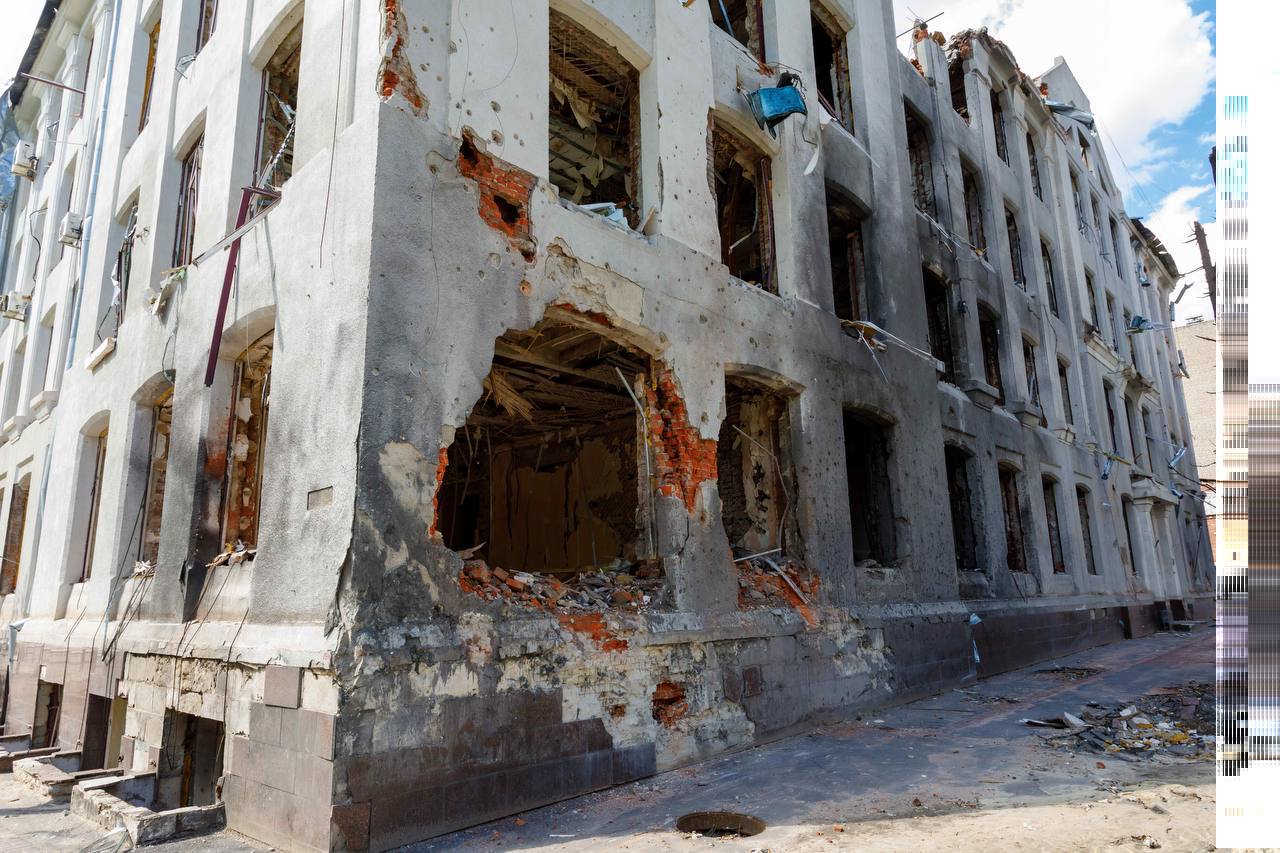
-
"We will sue Gazprom" - Poland
Poland will sue Gazprom. Polish President Andrzej Duda said that “appropriate legal measures” would be taken against the Russian company Gazprom after the cessation of gas exports to Poland and Bulgaria. Moscow demanded that all payments for energy be made in rubles, which Poland and Bulgaria refused, after which Russia stopped supplying gas to these countries. Duda said Gazprom would be required to provide “adequate compensation” for ” the breach of the contract.”
-
Putin promised the West a "lightning" response for interfering in Ukraine
The President of Russia is once again threatening Western countries with consequences for intervening in Ukraine. Putin warned that any country interfering in the affairs of Ukraine would receive an immediate response:
“If someone intends to intervene in ongoing events from the outside and create strategic threats for Russia, our response to oncoming strikes will be lightning-fast. We have all the tools that no one can boast of. And we will not brag about them, we will just use them if necessary”, Putin said. The Russian leader added that all decisions on what this response would include have already been made, but did not provide any details.
-
Russia builds up military presence in Izyum
The General Staff of the Ukrainian troops: Russia is moving troops to the city of Izyum. Russia has deployed two battalion tactical groups from its Belgorod region to the city of Izyum in the Kharkiv region in northeastern Ukraine to increase its presence there, the General Staff of the Armed Forces of Ukraine said in its daily briefing. The update also said:
- Russia has deployed two Iskander-M short-range ballistic missile battalions in the Belgorod region
In the Donetsk region of Ukraine, Russian troops are conducting offensive battles in the Severodonetsk, Popasny and Kurakhovsky directions in order to completely capture the cities of Popasny and Rubizhny.
In Mariupol, Russian troops continue to blockade Ukrainian units at the Azovstal plant, where several hundred of the city defenders and civilians have taken refuge.
Ukraine said that over the past day, its military personnel were able to repel nine attacks in the Donetsk and Luhansk regions.
Why is the Izyum direction important?
Izyum is one of the few large settlements that Russia captured during its invasion of Ukraine. This city is located in the northeast of the country. Now the main hostilities have unfolded in the east of Ukraine, in the Donbass. Here, Russia is trying to encircle the large Ukrainian forces concentrated in the region. It was to the south of Izyum that Russia managed to penetrate the defenses of the Ukrainian troops and create a threat of a breakthrough. Russia, apparently, wants to use this bridgehead in order to cut off Ukrainian troops in the Donbass with a blow from the north, therefore, new battalion tactical groups are being drawn to the Izyum direction (a mobile military formation consisting of motorized infantry, tanks, artillery and air defense, which is being created specifically for offensive operations).
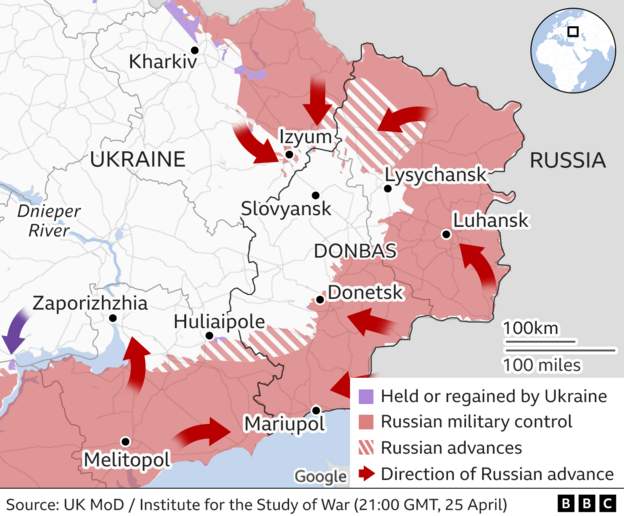
- Russia has deployed two Iskander-M short-range ballistic missile battalions in the Belgorod region
-
Summary of events by 10.30: Russia cuts off gas supplies to Poland and Bulgaria, numerous explosions went off in Russia
Russia stops gas supplies to Poland and Bulgaria. Polish and Bulgarian energy suppliers say they have received official notices from Russia’s Gazprom to cut off gas. Russia has said it will cut off gas supplies to Poland and Bulgaria unless they start paying in rubles, which both countries refuse to do. Ukraine called this action “gas blackmail” Poland says it can handle the situation and can access gas from other sources. On the morning of April 27, there were conflicting reports in the media. Poland announced that the gas supply had been resumed, but the Russian Gazprom confirmed the cessation of supplies.
Germany sends tanks. Meanwhile, Germany has authorized the delivery of about 50 Gepard anti-aircraft tanks to Ukraine, a major policy change. Berlin’s decision came after US and NATO defense ministers met at an airbase in Germany to hand over more weapons to Ukraine. Earlier, Germany refused to supply Ukraine with heavy weapons.
Explosions went off in several Russian cities. Multiple explosions have been heard in the Russian city of Belgorod, about 40km north of the border with Ukraine, according to a local official. Later, he said that, according to preliminary data, an ammunition depot in the village was on fire, and “there were no reports of casualties among the civilian population”.
The symbol of Russian-Ukrainian friendship has been destroyed. A monument to the friendship between Ukraine and Russia was demolished in Kyiv. A large monument in the center of the Ukrainian capital was ordered to be demolished by the mayor of the city, Vitali Klitschko, who said that “Russia has destroyed the normal life of millions of Ukrainians and destroyed the peace in Europe”.
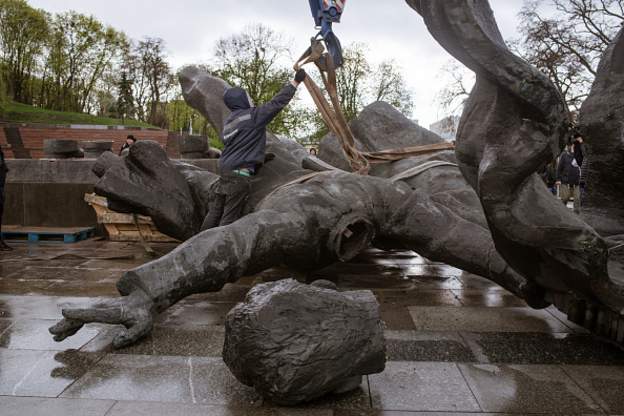
In the Kursk region, Russian air defense systems worked. Russian air defense systems went off at night in the Kursk region, the local governor said on Wednesday, adding that there were no reports of damage. There is information that a reconnaissance drone was shot down.
Russia Moves Slowly – ISW Think Tank. According to the latest assessment from the Institute for the Study of War (ISW) think tank, Russia is making slow progress in its invasion of Ukraine. The report says that Russian troops are moving more methodically and less quickly than in the earlier stages of the war, and have begun to behave “more sensibly”. To the east, Russian forces are confronting entrenched Ukrainian forces that have been preparing fortified positions since 2014 in anticipation of a Russian attack from that direction. But in the Kharkiv direction, in the northeast, the Russians meet less resistance due to the fact that the Ukrainian positions were established recently after the invasion had already begun. Fighting continues in the south, in the city of Mariupol. In addition to the stronghold of the Azovstal plant, the Ukrainians “probably still occupy important positions outside the plant itself”, the ISW said. Meanwhile, Russia, according to ISW analysts, is striking in Moldova, in the unrecognized Transnistrian Republic. Explosions and shelling were carried out in order to blame Ukraine for the attacks and to draw pro-Russian troops in Transnistria into the conflict.

-
Summary of events to 23.00: Germany sends Ukrainian armored vehicles, Russia threatens to divide Ukraine into multiple states
Germany authorized the delivery of about 50 anti-aircraft tanks to Ukraine. NATO and European Union defense ministers met today at the US Ramstein airbase in southwestern Germany to discuss providing more support to Ukraine. Germany announced a major policy change and the delivery of about 50 Gepard Flakpanzer anti-aircraft tanks to Ukraine. Equipment from the 70s in the last decade, located in storage warehouses, will receive maintenance before shipment. Germany has long had a policy of not supplying heavy weapons to conflict zones, but the government is under increasing pressure to refuse to help Ukraine.
Over the past two weeks, there has been an increase in the supply of heavy weapons to Ukraine from Western countries. They mainly send towed and self-propelled artillery and armored personnel carriers. NATO promises to increase the amount of aid.
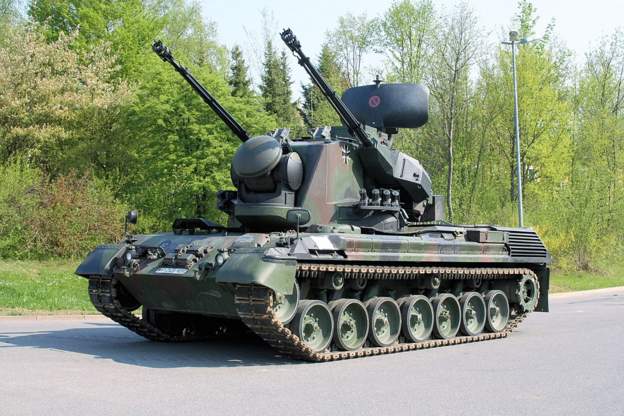
The UN Secretary-General met with Vladimir Putin in Moscow. Speaking after the meeting, Putin reiterated his justification for invading Ukraine but said he hoped for a diplomatic solution to the conflict. He said there was no longer any fighting in the Ukrainian city of Mariupol, which had been heavily bombed by Russia.
There is a risk that the conflict will escalate into World War III. This was stated by Russian Foreign Minister Sergei Lavrov, warning NATO against providing military assistance to Ukraine at an earlier meeting with Guterres. The UN Secretary-General described the talks with Lavrov as “frank” but insisted that he was visiting Moscow as a “messenger of peace.”
The Russian Defense Ministry predicts the collapse of Ukraine. Ukraine could be divided into several smaller countries as a result of the war, a senior Russian defense official said. Nikolai Patrushev, secretary of the Russian Security Council, accused the US and other Western countries of trying to sow hatred of Russia in Ukraine and said “history teaches that hatred can never become a reliable factor in national unity”. As a result, “the policy of the West and the Kyiv regime under its control can only be the disintegration of Ukraine into several states”, he told Rossiyskaya Gazeta. Russia has already recognized the independence of two pro-Russian breakaway regions in eastern Ukraine, initially describing its invasion as a peacekeeping operation in their defense. The republics were recognized by Russia within the boundaries of the regions, but at the time of the start of a new war, they occupied a much smaller area. In recent weeks, Russia has redeployed its forces to focus on these areas. Also, information often appears that Russia plans to hold a referendum in the Kherson region – the only region of Ukraine where Russia was able to capture the regional center.
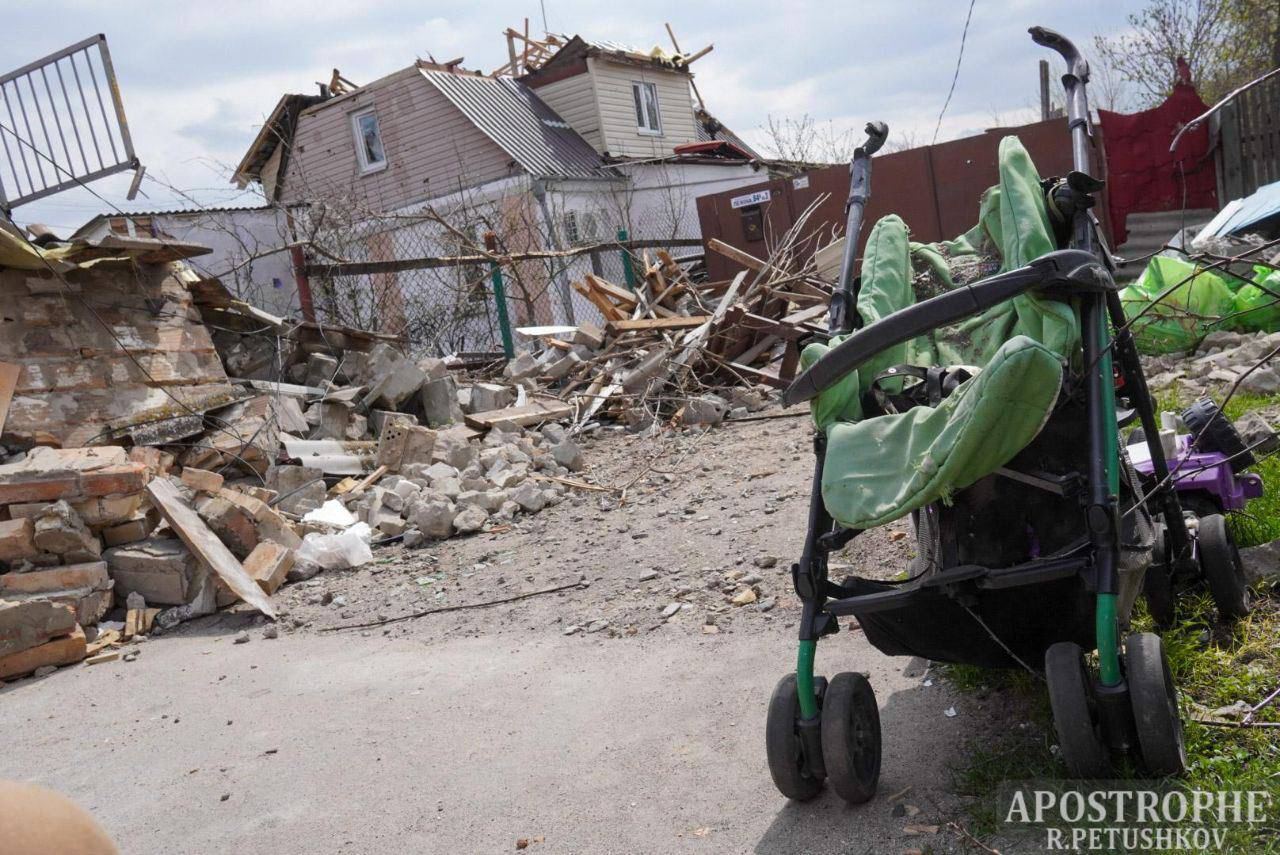
-
Press conference of Secretary General Guterres and UN head Russian Foreign Ministry Lavrov ended in Moscow. What did the diplomats achieve?
UN Secretary-General António Guterres and Russian Foreign Minister Sergei Lavrov concluded their press conference following their meeting in Moscow.
Lavrov complained that Western interference in Ukraine was being used as a springboard to limit, control and irritate Russia. He also blamed the current conflict on the West’s “invasion” of Russia’s “geopolitical space”, limiting Russia’s influence in Ukraine. Lavrov echoed the Kremlin’s unsubstantiated assertion that residents of the eastern Ukrainian region of Donbas needed to be freed from “fascists.” He also said that Russia would work with the UN to protect civilians.
Guterres said he held “candid talks” with Lavrov and reiterated the UN’s view that the war is a violation of Ukraine’s territorial integrity and the UN charter. The Secretary-General also stressed that despite the difference in positions regarding the causes of the war, the cessation of hostilities is in the interests of all parties, and called for the creation of safe corridors for the evacuation of the civilian population. Guterres concluded his speech with a call for respect for international laws and a return to cooperation to overcome the challenges posed by climate change and pandemics.
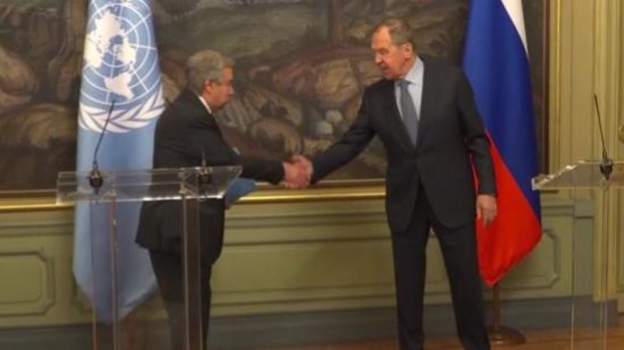
-
The Kremlin will have its own tribunal for Ukraine, it may be announced on May 9th. The process is planned to be carried out in the occupied territory
The Kremlin plans to announce the creation of an “international tribunal for Ukraine” in the coming days. It is important for Moscow to get ahead of the West, which is helping Ukraine investigate the crimes of Russian troops. Judging by the available information, the decision to hold a “tribunal” was made before the start of Russia’s invasion of Ukraine at a meeting of the Russian Security Council, which recognized the independence of the “LPR” and “DPR”. From the video recording of the meeting, the speech of Prosecutor General Krasnov was cut out, who, according to some information, had just presented a project for organizing a public court imitating an international tribunal against the Ukrainian authorities, who were planned to be captured by Russian troops. The Russian troops managed to capture only some of the military, who, presumably, will be judged as “Nazis”.
-
Two explosions went off in unrecognized Transnistria. Antennas broadcasting Russian radio are out of order.
Two explosions went off in the village of Mayak in Transnistria early in the morning on April 26, the Ministry of Internal Affairs of the unrecognized republic reported. As a result of the incident, two of the most powerful antennas were disabled: one – a megawatt, the second – a half-megawatt. Both relayed Russian radio stations. Shots were also heard in Transnistria yesterday. The Ministry of Internal Affairs of the unrecognized republic reports several shots from a hand grenade launcher at the building of the Ministry of State Security of the republic. Poland has declared a heightened terrorist threat regime.
On April 22, Deputy Commander of the Central Military District of Russia Rustam Minnekaev said that along with the occupation of southern Ukraine, during the second phase of the special operation, the Russian army intends to secure access to Transnistria, where allegedly “there are also facts of oppression of the Russian-speaking population”.
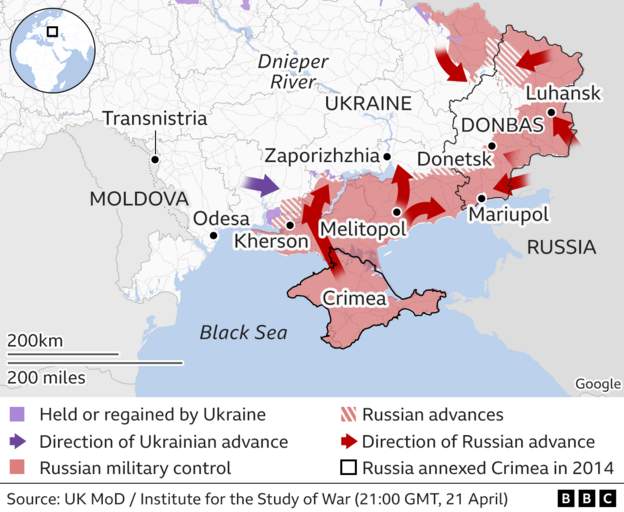
-
Summary of events by 10.30: US is reluctant to impose sanctions against "Putin's secret mistress", UK cancels quotas on Ukrainian goods
The US is deliberately delaying sanctions against Putin’s secret lover Alina Kabayeva, White House press secretary Jen Psaki said at a daily briefing on Monday that the US is deliberately delaying sanctions on a woman believed to be Putin’s girlfriend. “We are continuing to review sanctions,” Psaki said when asked why Russian politician and ex-gymnast Alina Kabaeva has not yet been targeted. “Of course, we have already imposed sanctions on President Putin, as well as on his daughter and his closest associates, and we will continue to check everything further”, she added. Putin is known for being very secretive about his personal life and has never admitted any romantic relationship with Russia’s “secret first lady”, as she has been dubbed in the Russian and foreign press. According to a Wall Street Journal report, U.S. officials suspended sanctions on Kabaeva out of concern that Putin would see it as a personal attack.
Lavrov: the threat of nuclear war is real. Lavrov announced the possibility of an escalation of the conflict to nuclear weapons, adding that he was reassured by the prospects for a peace agreement. Speaking on Russia’s Channel One on Monday, he said Moscow wants to avoid “artificially” raising the risk of such a conflict. “This is our key position on which we are building everything. The risks are now considerable”, Lavrov said. “I would not want to artificially inflate these risks. Many people would love it. The danger is serious, real, and we should not underestimate it”. Lavrov also accused Ukrainian President Volodymyr Zelensky of “pretending” to negotiate, calling him a “good actor”.
Lavrov: “NATO, in fact, is at war with Russia”. The head of the Russian Foreign Ministry also said that the supply of Western weapons to Ukraine means that the NATO alliance “essentially is at war with Russia.”
“These weapons will be a legitimate target for the Russian military operating in the context of a special operation”.
Our victory is inevitable – Zelensky. In his late-night video address to the nation, Ukrainian President Volodymyr Zelensky announced that Ukrainian victory was inevitable, but it was impossible to predict when the war would end. “Many cities and towns are still under the temporary control of the Russian army”, he said in his appeal. “But I have no doubt that the liberation of our land is only a matter of time”. Earlier in his address, he noted that the invasion, which began on February 24, had just crossed the three-month milestone.
The UK has banned the export of spy equipment to Russia. Electronic equipment that can be used to intercept communications and spy on Ukrainians is the latest category of goods that the UK has banned from exporting to Russia. The Department for International Trade also announced that the UK would lift tariffs and quotas on goods from Ukraine in response to President Volodymyr Zelensky’s request to support the country’s economy.
Finland and Sweden will announce their decision to join NATO in May. Finland and Sweden are preparing to simultaneously announce their desire to join NATO in May, according to local media. Russia’s invasion of Ukraine sparked growing public support for joining the Western defense alliance in both countries.
The US wants to see a weakened Russia. US Secretary of Defense Lloyd Austin expressed hope that Russia’s losses in Ukraine will deter its leadership from repeating its actions elsewhere. Ukraine can still win the war, he said, if it gets the right support. He also said that the United States will provide an additional $713 million in military assistance to Ukraine and other European countries.
UN chief Guterres will meet with Putin today. UN Secretary-General António Guterres is due to meet Russian President Vladimir Putin in Moscow today, but expectations are reportedly low for the meeting after several failed diplomatic efforts. Talks between Putin and Guterres are expected to focus on besieged Mariupol, where Russian troops, despite declaring victory, have failed to capture the Azovstal steel plant. Ukraine asked Guterres to guarantee a humanitarian corridor for the evacuation of civilians hiding on Azovstal. The UN chief is also expected to travel to Kyiv on Thursday, where he will meet with President Volodymyr Zelensky.
The Ukrainian city of Kremennaya was captured – the British Ministry of Defense. The city of Kremennaya in Luhansk is reported to have been taken over by Russia, the UK Defense Department said in its daily report but did not provide any further details on the matter. The Defense Ministry added that heavy fighting was reported south of the town of Izyum as Russian forces attempt to advance towards the towns of Slovyansk and Kramatorsk from the north and east, the report said.
Why is Russia advancing on the Donbas from the north and south?
After the 2014 war, when pro-Russian forces occupied part of the Donetsk and Luhansk regions, Ukraine was preparing for a new war in the Donbas. The most combat-ready units were concentrated near the line of contact. Ukrainian military personnel also created fortified positions there. The most vulnerable part of this group is the flanks. From the first day of the war, the media and experts often predicted the imminent encirclement of the Donbas grouping of Ukrainian troops. Despite the advance of Russia, this did not happen. Now Russian troops are again trying to break through on the northern and southern flanks in order to encircle the Donbas group. If the encirclement succeeds, it will become a strong blow for Ukraine and a big advantage for Russia.
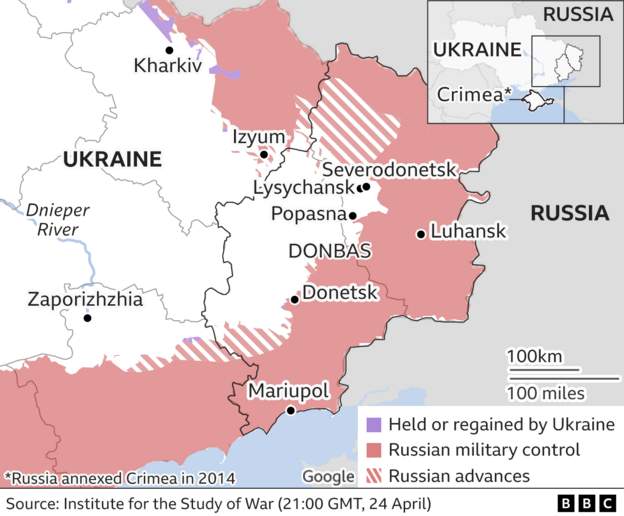
-
Russia’s invasion of Ukraine. Follow the timeline of April 23-25 events here



 Live
Live
















